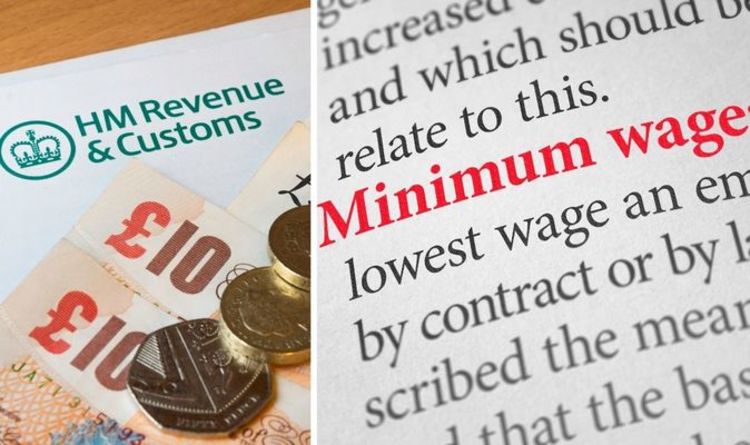
The National Minimum Wage (NMW) is what you must legally pay your staff. It’s an hourly rate and changes based on the age of your staff, as well as across-the-board increases every April.
You may see the phrase “National Living Wage” too. This is simply the name for the top rate of NMW, payable to anyone 21+. Previously, the NLW only applied for 23+.
And to continue that trend, the Autumn Budget confirmed the government’s plan to bring wages for the 18+ group in line with adults 21+ by the end of this parliament. Hence, you’ll see the jump in wages for 18-20 year olds much higher than 21+.
Every year the rates are updated, and you need to be careful not to accidentally underpay employees when the clock strikes April and everything changes.
But even without any changes in the NMW, employees have a habit of getting older each year – which means they may need a pay rise even if there’s no change in NMW itself – so you also need to check they don’t accidentally get underpaid on their birthday.
Not every birthday means a change in NMW – the big jumps in the minimum wage are when they turn 18 and 21.
The NMW is an hourly rate and you need to be REALLY careful in professions which involve travelling between sites or live-in care for example, about which hours count towards the NMW calculations, and which are treated as “non-working”.
Who cares if I underpay my staff?
Well, your employees for one… “Oh, hello, is that Take-My-Employer-to-a-Tribunal.com? Great…”
But HMRC really love hauling people over the coals for this too. They will have a field day, and you’ll find yourself publicly shamed in this rogues’ gallery 🙈
For example, even if you ostensibly pay an employee £12 per hour, but you don’t pay them for travelling between sites during the day, that could bring their effective hourly rate down below NMW. Be warned!😬
Don’t think you’re too small to matter! Sure, big names like Tesco and Pret made the list, but so did Rainbows Day Care, which underpaid its staff by an average of just £27, in what may have simply been an innocent mistake. You’d think HMRC would be better off focusing its efforts on bigger targets, but the cynic might suggest the likes of Amazon and Vodafone have scarier tax lawyers than HMRC…
What’s Happening in April 2025?
The National Living Wage (NLW) will rise to £12.21 per hour from 1 April 2025, an increase of 77p or 6.7%. That’s about another £130 per month for a full-time employee, plus Pension Contributions and Employer’s NIC on top.
The rates for younger employees and apprentices have also increased but at at much higher rate…
| Age: | From April 25: | Previously: | Change: |
| NLW (21+) | £12.21 | £11.44 | £0.77 / 6.7% |
| 18-20 | £10.00 | £8.60 | £1.40 / 16.3% |
| 16-17 or Apprentice | £7.55 | £6.40 | £1.15 / 18% |
And of course, it doesn’t just affect employees on the minimum wage…as their pay bumps up, it’s natural that their supervisors and other staff will want their wages to increase at a similar rate.
What should I do now?
It’s spreadsheet time!
First, make yourself a list of all your employees, and work out what their effective hourly rate is, based on their basic contracted hours.
Now ask yourself – do they normally work some unpaid overtime, perhaps half an hour here and there, just getting jobs finished before they go home for the day.
You don’t necessarily have to pay them for that time (that’s a whole different area of employment law) but you need to include the time when working out their effective hourly rate – which must not be allowed to go below the relevant rate.
If you’ve got employees which are going to be below the NMW from April 25, I’m afraid it’s time to pony up and start thinking about a pay rise for them.
Equally, if you have employees which are above – but very close to – the new rates then remember that unpaid overtime could push them below NMW if you’re not careful.
Finally, to save yourself any sleepless nights, check out the birthdays for any employee under 21 and make a note in your diary for the month before, to make sure you increase their wages accordingly for when they turn a year older.
How can accountants help?
Firstly, accountants aren’t employment lawyers. So if you’ve got an employee (or ex-employee) screaming blue murder at you and threatening to report you to HMRC / ACAS / their big brother etc, it’s time to speak to a legal bod. We can put you in touch with someone if you would like a connection.
But if you want to make sure your house is in order before it all goes to s**t then your accountant is your friend.
Get them to help you review your staff base before April, so you can sleep easy knowing everyone is paid at least the legal minimum, and you won’t be named and shamed by our friends at the Treasury…


